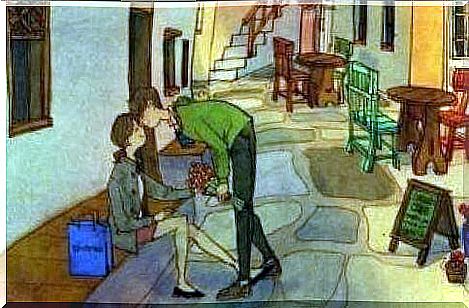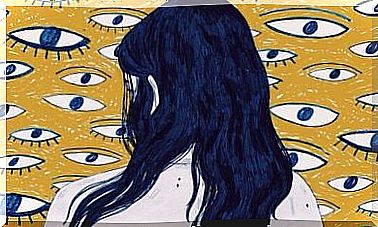Growing Together In The Relationship

To build. Grow up together. Offer yourself to life. Tear down the castle. Lift it up. Wake up. Dream. Sleep. To eat. Devour. To kiss. Love. Love yourself. Discuss. To disagree. Reconcile. To smile. Hugging. To admire. Cultivate affection. Caress. Excite. All this and much more is a couple relationship that grows together.
Knowing your partner’s tastes, knowing what makes him happy or sad, remembering the names of his favorite artists, maintaining intellectually stimulating conversations, having confidence and freedom, offering special details, etc., this is the emotional world of a couple, with a love map and detailed routes.
So, is this how a couple relationship is built without codependency ? Yes, because everyone knows each other’s fears and worries and doesn’t want to merge with them. This is an essential aspect for a growing couple.

The love map of the growing couple relationship
According to psychologist John Gottman, love maps are a part of the mind where we store all relevant information about the partner’s life. Remembering this and paying attention to changes in feelings in the partner allows us to know his life goals, concerns and hopes.
We need to take the time to remember whatever happens that is relevant to the partner. While it should all stay in our minds, it wouldn’t hurt to jot down on a piece of paper constantly. It is a great exercise in hetero-knowledge. Let’s see it together:
Characters in the life of the partner
- Friends
- Potential friends
- Rivals, enemies, opponents
Latest important events in the life of the partner
- Upcoming events (what the partner eagerly awaits or fearfully awaits)
- Current partner tensions
- Partner’s current concerns
Partner’s hopes and aspirations (about himself and others)
This point must be schematic and continuously enriched. Each member of the couple can write down information about him in a notebook and then exchange the notebook with the partner. Eg:

My battles and my successes
- What event in your life are you particularly proud of?
- How have your successes influenced your life? How have they influenced your idea of yourself, your skills, your goals and the things you strive for?
- What degree of importance does pride have in your life (ie, the experience of feeling proud, of being praised, of praising in turn, etc.)?
- Have your parents shown you that they love you? Like? Was love manifested in the family? If not, what were the consequences in your relationship as a couple?
- What role did pride in your successes play in your relationship? What role did your battles play? What would you like your partner to know about these aspects that concern you, about your past, your present and your plans for the future?
My wounds and my healings
- What difficulties did you face? Losses, disappointments, challenges, problems, stress, deep traumas …
- How did they make you stronger? How did you channel your pain?
- How did they affect your relationship as a couple? What would you like your partner to know and understand about these aspects that concern you, your past, your present and your plans for the future?
- How do you express and how did your family express every emotion when you were a child?
- What is your philosophy regarding the expression of feelings?
- What’s the difference between the way you express your feelings and the way your partner does it? What lies behind these differences? What are the implications?
My mission, my legacy, who I want to become
- You have to imagine yourself in the cemetery in front of your grave: what would you like to see written in the epitaph?
- What do you want people to think about your life?
- What is your purpose? What is its significance?
- How would you like your life to be in 10 years?
- Etc.

The strength lies in knowledge
It is not about longevity in the relationship, but about the quality of intimacy. Getting in touch with the external aspects of your life (for example, the passions) and with your inner world (desires, principles, fears, etc.) will allow you to behave in an emotionally intelligent way within the relationship.
Connecting with your partner and being updated on changes in your partner’s love map and relationship together will help you not be destabilized in terms of feeling in times of change (for example, having a child).
Finally, it must be emphasized that if your goal is to have a healthy relationship, then you will never have to relax and stop getting to know your partner, admire him, update the love map in order to get closer and enhance development. individual and couple.









